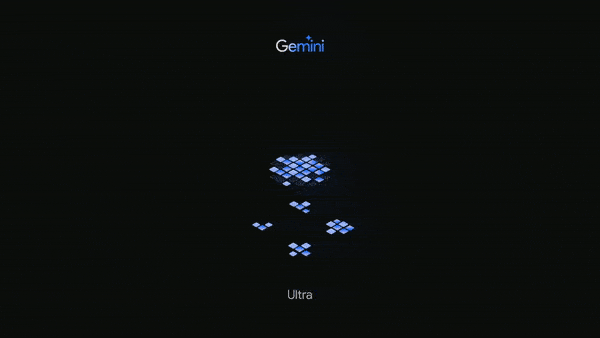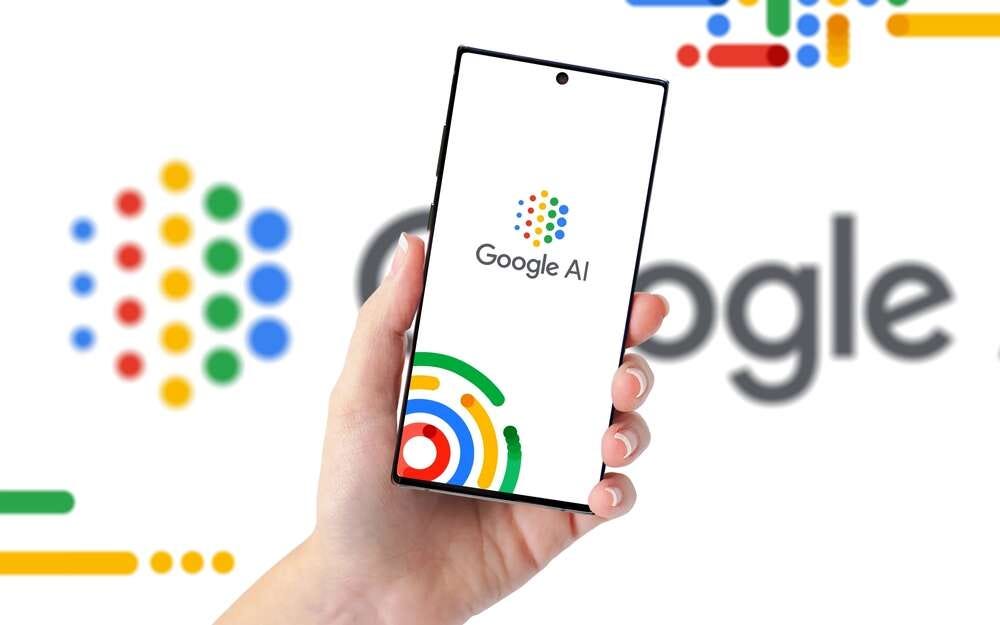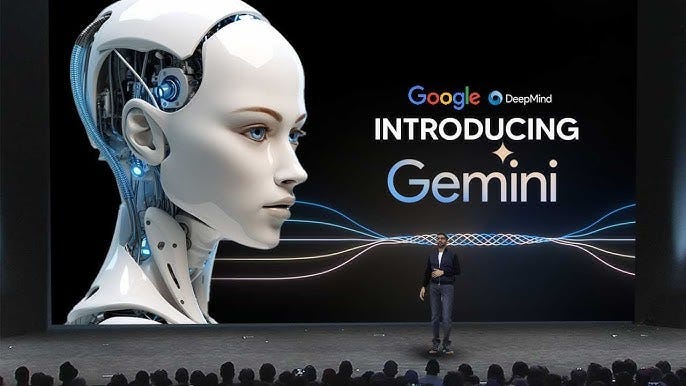AI: It's all on Google Gemini AI soon
...Gemini : Google :: Copilot : Microsoft. Possible change in Google multi-brand modus operandi
Since the beginning of Google’s responses to OpenAI’s ‘ChatGPT moment’ late 2022, and partner Microsoft’s AI Copilot onslaught as well as AI backup initiatives in this AI Tech Wave, Google has had a multi-prong set of AI initiatives. The idea has been to augment its Search and other information businesses. These AI brands ranged from Palm to Bard to the latest with three flavors of Gemini, Nano, Pro, and Ultra.
With Ultra slated to launch early this year. It could be as early as this Wednesday, February 7, 2024.
The grapevine has Google putting all the wood behind is AI arrow in Gemini. The perceived Google Tortoise is speeding up its AI initiatives against OpenAI/Microsoft’s Hare, according to a ‘leak’. As ‘9to5 Google reports in “Google Bard to become ‘Gemini’ very soon with ‘Advanced’ tier and Android app”:
“Google Bard is in for a big shakeup in the next few days, as an early changelog reveals that the “Gemini” rebrand is coming next week with a new Android app and more.”
“Over the past few months, Google has rapidly been building out Bard, its generative AI chat experience, with new features and capabilities. Last year, Bard was upgraded with “Gemini” as the behind-the-scenes model and, more recently, added an image generator. But, all the while, Google has been working on a big change to Bard.”
“As we reported earlier this week, evidence spotted through Android and Bard’s web experience showed that Google is looking to rebrand Bard as “Gemini,” matching the name of the foundational model powering it. Now, an early changelog for Bard spotted by Dylan Roussel shows that the change is coming this week.”
“The changelog, currently with the date February 7 attached to it, directly says that “Bard is now Gemini,” and also offers some insight into Google’s reasoning. As was announced this week, “Gemini Pro” now powers Bard in all countries and languages where Bard is available.”
“Beyond the change in name, Google also notes in the changelog that access to “Gemini Advanced” will also be available starting on February 7. The “Advanced” tier was announced in December 2023 and is built on “Gemini Ultra,” the most capable of Google’s models. We’ve also reported that it will be paid while also adding some additional functionality. Google’s changelog directly mentions that this is a paid product, and that it will expand with more features including “expanded multi-modal capabilities,” better coding support, and “the ability to upload and more deeply analyze files, documents, data, and more.”
“After being rebranded from Bard, Google Gemini will also be getting an Android app.”
If true, it’s good to see Google consolidating its AI efforts and assets behind one effort. Alphabet/Google historically has been content to have several entities and brand compete in the same sectors. Note Google Maps and Waze in online maps, Google Brain and Google Deepmind in AI, and so many more examples across the Alphabet/Google empires. Separately by the way, Google announced generative AI pilots with Google Maps that look interesting as well.
As Ars Technica noted a decade ago in “Google’s product strategy; Make two of everything”:
“The company's actions have shown it doesn't really believe in focusing on a single solution to a problem, regardless of how much easier that would make things for users. It has to deal with external competitors in all sorts of areas, and Google seems to see no reason why competition can't also come from within—Google products competing with other Google products.”
“This multi-product approach is good for Google's long-term health, but it also wastes a lot of resources. There is duplicate work going on all over the place, but if Google is flush with anything, it's resources. Adsense and Adwords bring in so much revenue that, for now at least, the company can afford to be wasteful.”
“It's also not the best for customers. It's often confusing to have two products to choose from in the Google ecosystem, especially on a smartphone, where there are sometimes multiple apps that serve the same purpose. Google is more focused on its long-term market presence than worrying about ease-of-use in the short term, though. This is probably the biggest difference between Google and Apple.”
“Apple offers a focused user experience that is very easy to understand. Google offers multiple ways to do everything, some of which are good, some of which are really complicated, and some of which are "Zombie products" that aren't actively developed but hang around for years.”
The piece goes onto to give almost a dozen examples of this dual and multiple product/brand strategy and it’s continued to this day.
But a different approach may be needed with AI.
At a time when AI customers both consumers and businesses are still trying to figure out what AI is good for, what does it really do that’s worth paying for, and how reliable and trustworthy it end up being, it’s important for minimal sales, marketing and adoption friction as possible.
It’s timely that Google CEO Sundar Pichai may be consolidating AI efforts behind Gemini, as his counterpart Microsoft CEO Satya Nadella has done with Copilot around Microsoft products and services.
We’ll wait to for the official word from Google on the AI consolidation around Gemini. But it’s a move in the right direction in this early phase of the AI Tech Wave. It’d be a big change in Google’s long-standing modus operandi. Stay tuned.
(NOTE: The discussions here are for information purposes only, and not meant as investment advice at any time. Thanks for joining us here)








